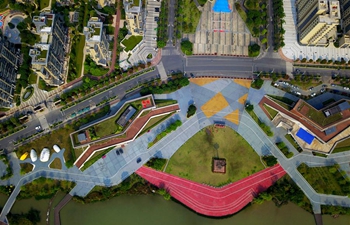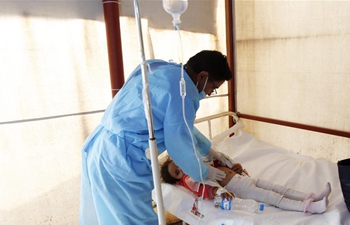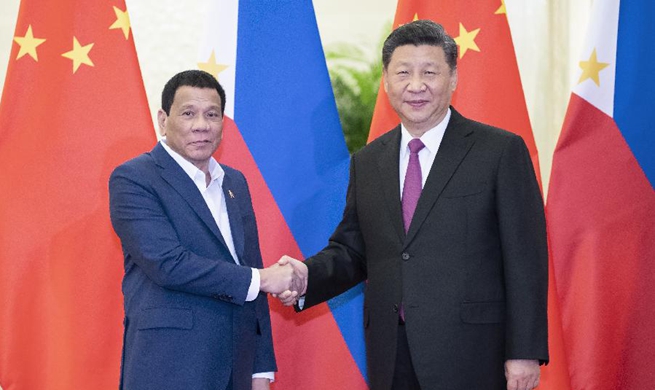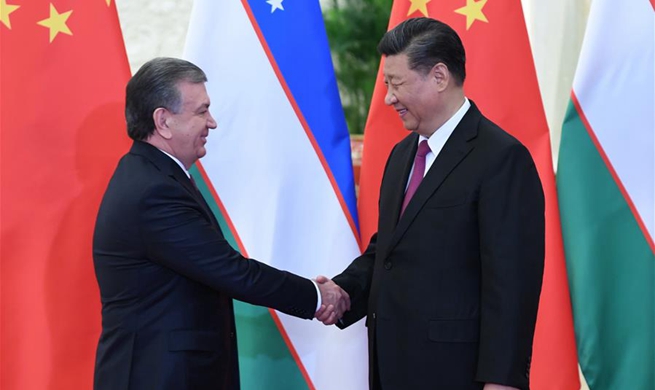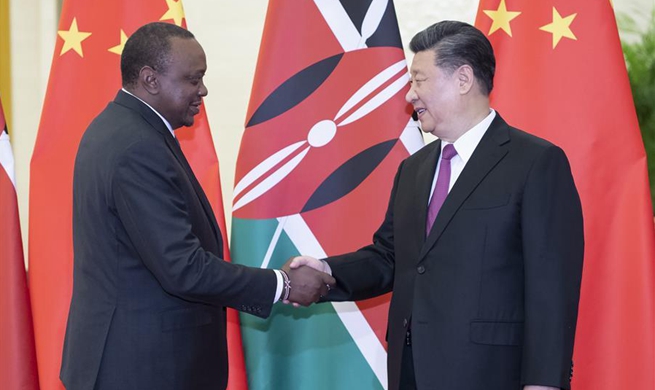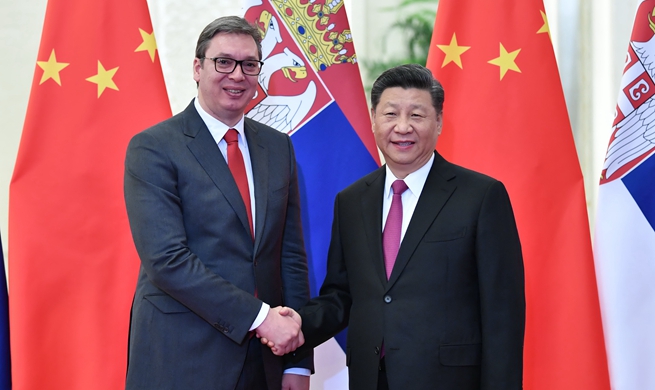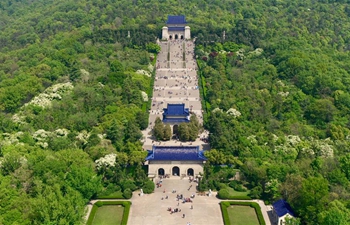MEXICO CITY, April 24 (Xinhua) -- Atop a remote mountain peak in northernmost Argentina, the largest solar park in South America is taking shape thanks to Chinese financial and technological cooperation.
China-supported infrastructure projects in Latin America are a natural extension of the Belt and Road Initiative (BRI), a global development plan to drive world economic growth through stronger trade and connectivity.
The scheme's ripple effects not only stand to have a positive impact on pressing global issues, such as climate change and urbanization, but are also having an immediate impact on communities near project sites.
"This is the future. We are eliminating a good amount of polluting carbon dioxide by promoting alternative renewable energy sources," said Jorge Delgado, a civil engineer at the Spanish-Argentine company TSI, which is also involved in the solar park project.
Meanwhile, local residents are benefiting from the employment opportunities and soon they will also benefit from a stable energy supply, which is expected to reduce local migration to the country's capital Buenos Aires and other major cities.
In neighboring Chile, Chinese cooperation has helped modernize the public transit system in the capital Santiago with a fleet of electric buses.
"Talking about electric public transit sounded futuristic several years ago. But today, it's a reality that circulates through our streets daily," Chilean Transport and Telecommunications Minister Gloria Hutt said recently.
Farther north, in Ecuador, the BRI has offered an opportunity to develop the country's infrastructure and connectivity to enhance its trade, tourism and business ties with the rest of the world.
Chinese companies are currently working on projects along the country's northern Pacific coast, an area hard hit by a powerful earthquake on April 16, 2016.
China Road and Bridge Corporation-China National Electronics Import & Export Corporation (CRBC-CEIEC) have helped launch large-scale infrastructure projects in the northern provinces of Manabi and Esmeraldas.
The projects include the reconstruction of the Eloy Alfaro International Airport in Manta, Manabi's second-largest city, and two bridges in the province. A fourth project centers on the Quininde-Las Golondrinas Highway that connects Esmeraldas with neighboring Imbabura province.
"China is a strategic partner, more than that, a great complement for our state," Luis Parrales, the consortium's supervisor overseeing the airport's reconstruction, told Xinhua.
The BRI is helping expand Latin America's connectivity with "deep insight," according to Alicia Barcena, executive secretary of the Chile-based United Nations Economic Commission for Latin America and the Caribbean (ECLAC).
By promoting the initiative in Latin America, China is showing its willingness to support growth in this region and other areas beyond its own continent, she said.
Calling Latin American and Caribbean countries "China's most distant partners," Barcena said China has shown it favors not only improving its connectivity with countries overseas, but also improving the connectivity in other regions and subregions, in a bid to promote global trade and exchanges in other areas.
With that in mind, the second Belt and Road Forum for International Cooperation, which starts Thursday in Beijing, presents a key opportunity to strengthen this effort, she said.
ECLAC sees China as a leader in technological development, something the agency considers "very important" for Latin America and a learning opportunity, said Barcena.
"This initiative (BRI), which ECLAC has been encouraging, studying and providing technical material for, could be of great help in generating Chinese investment and joint ventures in our region," she said.
Today, China-Latin America ties "are deep and extend to culture, sports, education, political parties, tourism, science and technology, and energy, among other areas. This has been the result of decades of building trust and of commitments on both sides," said Argentine economist Gonzalo Tordini.





